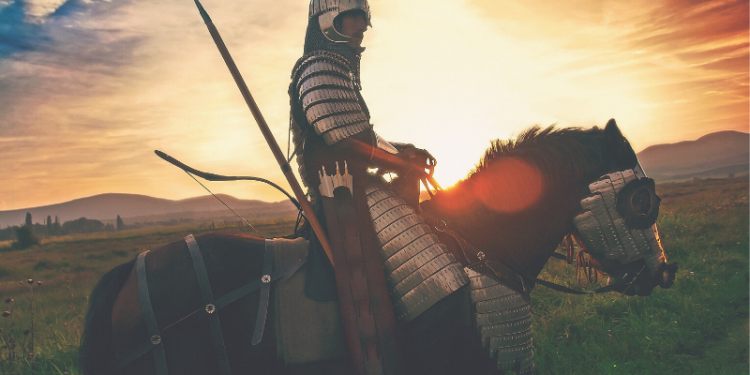Roleplay in Combat

Of the three pillars of Dungeons & Dragons (or any tabletop roleplaying game for that matter), roleplaying is the glue that holds the other two, Combat and Exploration, together. It is what gives us a reason to use our +4 ax of glittering damnation or to find the lost kingdom of Sundabrind.
So how can we incorporate roleplaying into more aspects of the game? How do we RP combat?
There are three principles that can easily serve you in combat to help make it more than a strategy game. They are:
- Character-centered action
- Using all tools available to you
- Abilities are extensions of the character
Character Centered Action
Character centered action is focusing on the questions “What would my character do?” over the question “What is the most strategic thing for me, the player, to do?”.
Dungeons & Dragons allows for both roleplaying and turn-based combat that has a depth of strategy and tactics that could be used. You can play your D&D heavily weighted to one or the other, and both are great!
But by focusing on what it most makes sense for your character to do, you not only make the game more interesting but you also potentially expand the number of options available to you. Instead of just reflexively attacking an enemy once initiative is rolled, think about what your character’s main objective is (developed in your backstory and over the course of the campaign), and make a decision based on that.
This does depend on the kind of enemy you’re faced with. A gibbering mouther can’t be reasoned with, and a troll likely just wants to eat you, but there are some monsters that would rather not fight you. If your character is skilled in diplomacy or intimidation, maybe try to negotiate a peace, or frighten them off.
If the encounter demands a violent response, you could use your abilities in character. For example, a paladin whose mission it is to cleanse evil may methodically evaluate and go after first the root of evil in an encounter, like a bandit chief or a cruel hag. A pacifist-leaning wizard might use wall spells and other control spells to prevent combat to slow down their enemies without ever causing them harm.
Keep in mind too the consequences of your actions. A barbarian could tear bandits apart while in a rage, only to feel obligated to inform their families personally of their loss and commit to helping them deal with the loss.
You could open up the game from a kill-people-and-take-their-stuff style game to one that encourages thinking about your character less as a collection of stats and more as a cohesive person.
Use All Your Tools
In combat, take a few moments to note not just what spells and abilities you have available, but what other gear, motivations, or knowledge you might have.
A dungeoneer’s pack may allow you to climb a small outcropping to get an advantageous shot on the enemy, or your training as an acolyte might help you identify the weaknesses of a particular enemy. The equipment, training, hopes, and knowledge that your character carries with them are just as important, and just as much a part of them as their spells are known or class abilities.
A monk may have mastered how to stun enemies with her ki, but she also follows a philosophy of forgiveness. She also happens to have some rope on her, so the player uses their action to try to lasso and hogtie the raging orc. The combat ends without any blood being drawn, fulfilling the monk’s philosophy.
Get creative with your tools. A hammer is great for bashing things, but it can also be an improvised doorstop or grappling iron. The dice may or may not favor you, but the attempt will be worth it for the story.
Abilities Are Extensions of the Character
When I am creating a new character, I like to read a class’s abilities and use that as the basis for a character. Like what would a fighter who really liked using polearms play like? Or a sorcerer who just wants to be a dentist?
Well, once your character is more or less set in your mind (like jello in a mold), think about how your character acquired their spells and abilities. What was their training like? If they didn’t receive training to get it, how did they discover the ability? What need drove them to acquire it? This can reveal a massive amount of information about your character.
Your character chooses to interact through the world with their class abilities. They chose at some point to become a wizard or fighter or rogue. Even sorcerers choose to try to master their abilities, but why?
This is where you return to your character’s central motivation. Everything should flow to accomplishing it somehow. Maybe not directly, but your class abilities represent the most practiced and cared for actions your character takes.
How they use them can be used to inform character and express it in play. A sorcerer who is careless with their spells, often catching allies in their blasts may have little regard for other people’s lives because they don’t see them as being as important as they are. They might be hesitant to release their full power for fear of losing themselves.
Whatever class and character you create, keep them in mind while next in combat instead of the game mechanics of combat. See what happens! If combat is a slog normally, it might become much more fun now that there are stakes involved beyond “Will I die?”. Giving your character a reason to act causes everything else to blossom.



